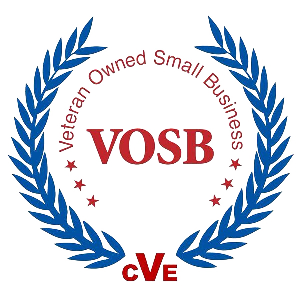The following are my thoughts on the best behaviors, attributes and practices possessed by an HSE professional. My focus isn’t degree or certification centric, but it is based upon experiences, both personal and professional. I also think that the approach which one takes makes a great impact on the results.
In addition to tangibles, such as degrees, other intangibles are vital to becoming the “ultimate” HSE professional. Additionally, notice I don’t mention political. Although it is necessary and wise to have a political perspective on how to navigate through the organization to get the best value out of oneself, as well as giving more to the enterprise, I believe it becomes its own endeavor and distracts from the core of the profession.
Please consider what I deem as the best professional HSE ingredients and compare them to your thoughts. My reason for doing this is to force myself into having to think about what makes an HSE professional great and to have the professionals critically evaluate how they approach their work. Once I have a benchmark in mind, I will discuss my thoughts with people in the profession and try to grow the best HSE professionals in the world, including myself!
Leadership commitment
At best, an HSE professional can only survive without the support of leadership; however, in order to thrive, leadership support is imperative. Key leadership support for HSE professionals include at least the following:
- Lead and follow by example
- Approve headcount
- Provide expense/capital
- Support campaigns and cultural change
- Allow intelligent risk taking
- Create a growth environment
- Coach
Attributes that Generate Talented HSE Professionals:
- Legal, moral and ethical behavior at all times
- Strong leadership/followership
- Giver
- Thinker
- Doer
- Communicator
- High energy
- Specialists/generalists/cross training
- Stretch/special assignments
- Education
- Certifications
- Benchmarking
- Languages (most impressive)/cultural awareness
- Set high expectations of oneself and the organization
- Punctual
How to get the work done:
- HSE integration into the business
- Basic HSE training
- HSE assignments
- Mentoring/coaching
- Project/program management
- Communication
- Organizational Level HSE Committees
- Organized by hourly or employees doing the work
- Led by hourly or employees doing the work
- Supported by hourly and management employees
- Mission is to get things done and improve
- Management Operating Systems
- Preplanning
- Post mortems
- Leading indicators
- Talent diversification
- Integration into everything
- Risk taking
- Culture – it becomes 2nd nature
Continuous Improvement Postulates
- Know E. Deming
- Less is more (things)
- Avoid flat surface disease
- When in doubt, cut in half
- Go gemba
- Guessing might be necessary
- Make the world visual
- People are not commodities
- Endeavor to poka yoke
- Listen more, speak less
- 50% of a lot is more than 100% of nothing
- Pursue the critical few versus the trivial many
- Muda is everywhere and always will be
- Think and act differently
- Seek the truth
- Live it
- Celebrate success
My attempt in this discussion is to evoke thought from the reader. It applies to the HSE professional, as well as the leadership within the profession. In fact, themes are sewn throughout the document that speak to almost any profession.
I want to leave you with this. Have you ever wondered what makes the Italian people so great at what they do? Think about their impact on the world. Their architecture, automobiles, fashion, guns (Beretta is the oldest gun manufacturer in the world), the arts and finally their food and wine, all of which are incredible. What is the key ingredient? I had this discussion with a lady some time back, who lived all over the world, including Italy, and we arrived at the essence of what makes the Italian people so great at what they do. It was all summed up in one word, love.
The Italian people put their love into the work they do. They are exacting and care very much about how their work is going to be received by the consumer. If nothing else is gained from the time you have invested reading this discourse, ask yourself, how much love do I put into my work, and is it enough?

